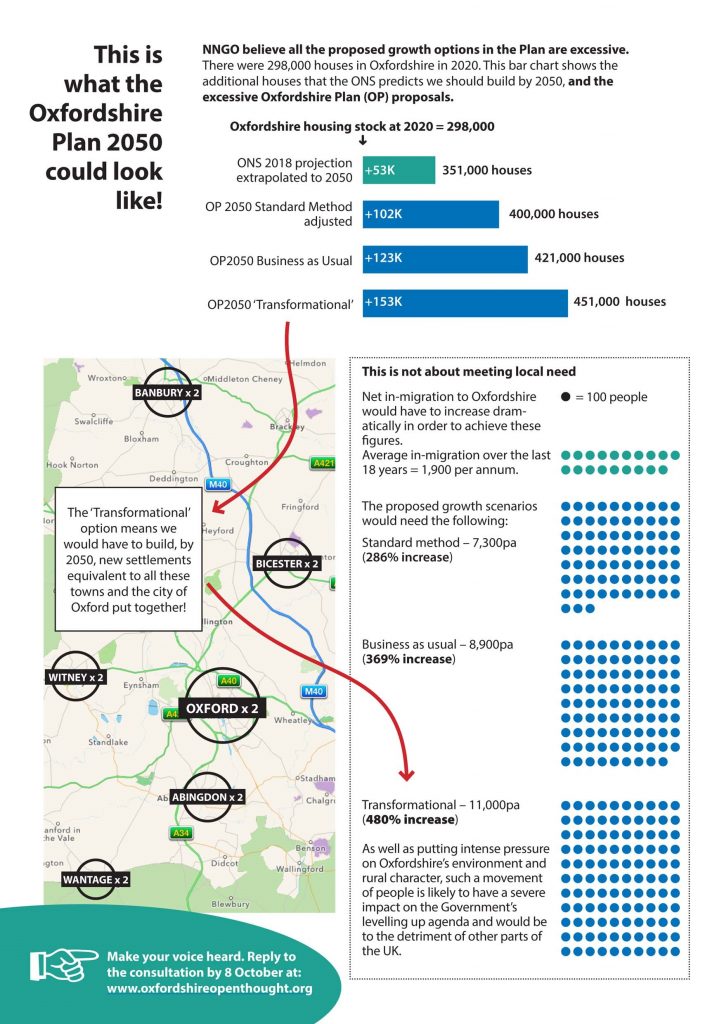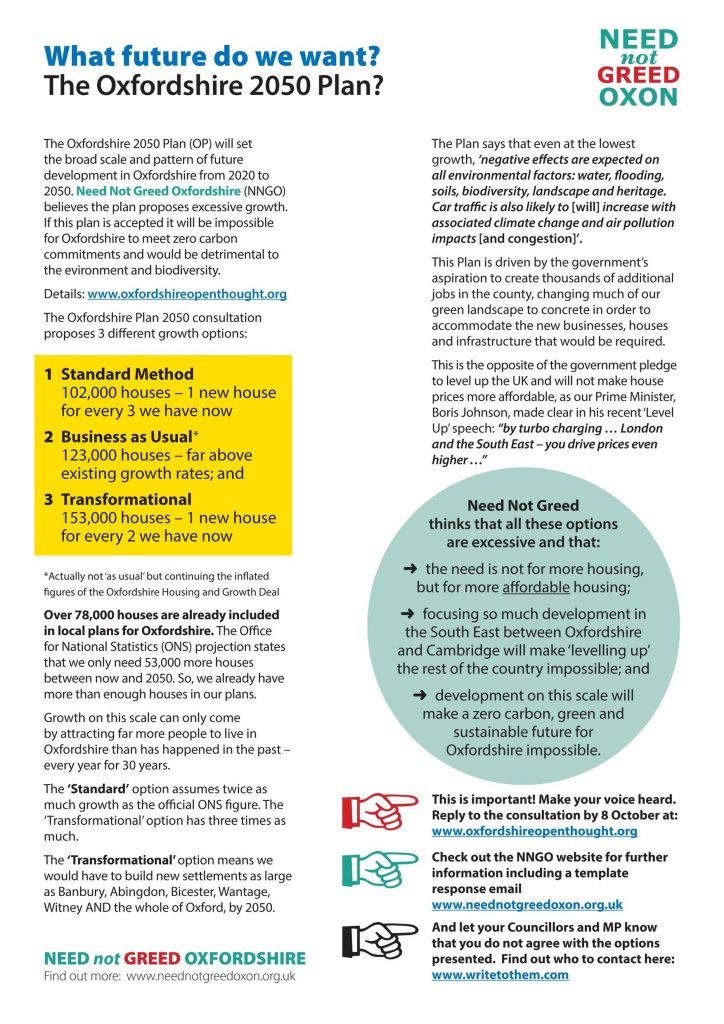

The Oxfordshire Plan will set the development framework for the county for the next generation. It will affect all Oxfordshire residents.
Take a look at the NNGO flyer above or download here and read our concerns about the Oxfordshire Plan 2050.
Want to have your say in the future of Oxfordshire?
Here’s a template email which you can cut and paste, feel free to change it to make it your own and to cover your specific concerns eg Green Belt, infrastructure, water quality.
SEND TO: info@oxfordshireplan.org
DEADLINE: 8 October
If you have a further minute, please share your email with your Councillors and MP and let them know that you do not agree with the options presented in the Oxfordshire 2050 Plan. You can find out who to contact here: www.writetothem.com
Dear Oxfordshire 2050 Team,
Preferred Policy Option 28 on Homes states: ‘Through this consultation on the Regulation 18 Part 2 stage of the Oxfordshire Plan, the scenarios for the total housing requirement figure 2020-2050 (the OGNA) need to be considered and views are sought’. My views are as follows:
I would like to see the total housing requirement set at the lowest possible figure, preferably lower than the Option 1 Standard Method, which is still substantially above that needed to cater for the existing population.
I am deeply concerned at the current and proposed levels of development in Oxfordshire and the plans to supercharge the growth of the county as traditionally measured. This will result in many more people moving into the area requiring ever more houses, roads and traffic. This scale and pace of development, replacing countryside with concrete, is completely inconsistent with our declared climate and nature emergencies.
The housing growth option in the 2050 Plan described as ‘business as usual’ is actually continuing an exceptionally high growth plan which is set to transform much of our landscape over the coming years and will enable house builders and land owners to profit at the expense of the quality of life of existing residents.
There should be an option for Oxfordshire to grow organically, based on up to date natural population growth numbers produced by the Office for National Statistics, with the focus on making housing in the area more affordable. Policies on restricting buy to let and introducing a land value uplift tax would be good. Policies enabling housing association and council houses on brownfield sites would also be enormously helpful.
I also want our Council Leaders to resist any attempts by central Government to impose an increase on the number of houses to be built in Oxfordshire as part of the OxCam Arc proposals.
Local and by-election results over the last couple of years suggest that a great many members of the public share these concerns and I would ask that you and our elected representatives robustly engage government to rethink its strategy for Oxfordshire and focus instead on their election promise of levelling up the UK – creating jobs where people already live.
[Add name & address]